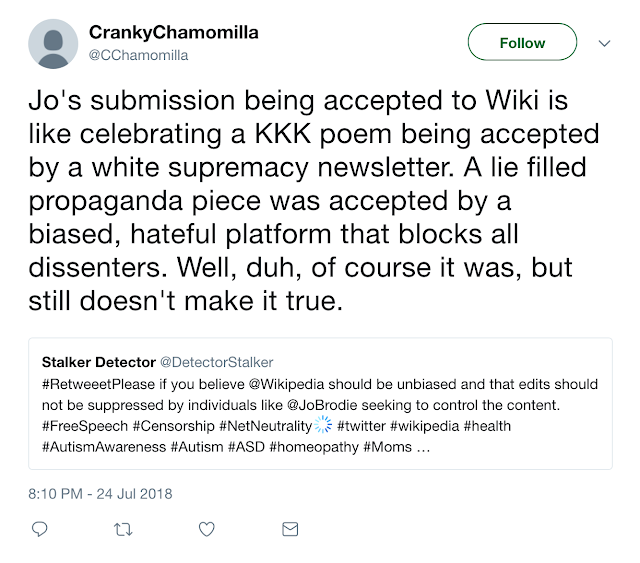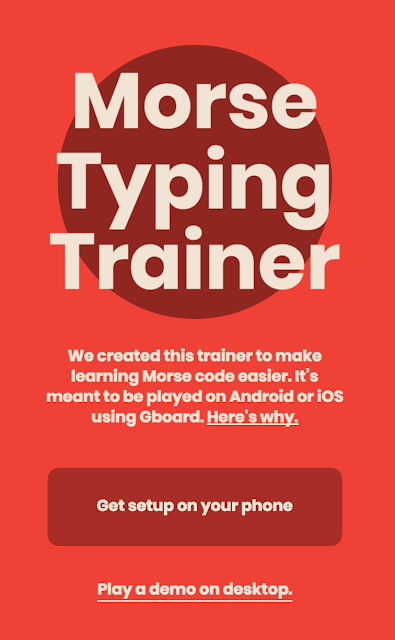For some time I and others have been trying, not all that successfully, to get UK homeopaths / naturopaths to stop making misleading claims about curing or treating autism. The information accompanying their treatment promotes the idea that vaccines cause autism (which is a harmful idea to be promoting anyway) and the treatment itself involves the notion of 'vaccine detox' through large doses of vitamin C alongside a buffet selection of supplements, dietary restrictions and homeopathy. CEASE therapy (Complete Elimination of Autistic Spectrum Expression - the name itself is problematic) is promoted to parents of children with autism and no evidence has been provided of it being of use to anyone. A related 'treatment' is Homeopathic Detox Therapy or HDT.
In 2015 Teddington Homeopathy was reported to the Advertising Standards Authority (ASA) for misleading CEASE-related claims and the ASA adjudicated against them and subsequently added them to their non-compliant online advertisers list. [I submitted a complaint myself but the ASA had already begun to take action based on someone else's prior complaint].
More recently we have asked the Society of Homeopaths to rein in their own members. There are several homeopathic societies in the UK and the SoH has its members' register accredited by the Professional Standards Authority (PSA) so I suppose this offers a potential source of leverage. Happily the PSA listened to our* complaints and imposed conditions on the SoH when reaccrediting their register. The SoH published a position statement advising their members to take care about misleading claims relating to the treatment.
In my own complaint, to the SoH, I reported five of their members who had been making misleading claims, then I periodically monitored the five websites for any changes. Sadly the changes were fairly minimal - hence the 'not all that successfully' reference above. Most significantly one member has cancelled their SoH membership (so they are no longer required to follow the SoH's guidelines on marketing etc) but very little of the text has changed.
In July 2018 the ASA adjudicated against another CEASE therapist who offered CEASE among several other things, so it wasn't the main focus. I also discovered that they'd written to several homeopaths in May and June enclosing an Enforcement Note on CEASE therapy and asking them to ensure that their marketing material did not make misleading claims.
Since getting regulatory bodies to take action on misleading health advertising is a long, slow process I thought I'd try a parallel approach of creating a new Wikipedia page about the therapy. Wikipedia's pages can feature prominently in search engine results so I'm hoping that the page might appear when families are searching for information. No guarantees of course! No sign of the page in search results yet but it's only been 24 hours.
*our - I did put in a complaint however the timeline was such that the PSA had already had its meeting and taken action before I did, so mine's unlikely to have contributed much to the outcome.
After writing about the new Wikipedia page on Twitter I got a fair bit of push back from homeopaths and CEASE therapists who get a bit cross when anyone points out that they're making unsupported claims about an implausible treatment. One of them created a new account with a username that is typical of the lack of insight of some homeopaths I've spoken to (see screenshots below). Of course this certainly seems a bit intimidating and might put people off from writing about their activities on Twitter but it doesn't actually stop people from undertaking those activities (or getting other people to mention them instead).
 |
| Is it really like that I wonder ;) |
There's still a lot to be done on CEASE. Getting the ASA and SoH to persuade homeopaths to remove misleading claims is only one small part. They are still attempting to treat children with autism which is beyond their level of competence and a safeguarding issue. The MHRA can block the sale of the 'remedies', local councils can take action around safeguarding and Trading Standards can prosecute.













